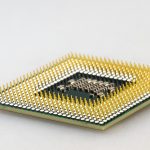There’s no denying that computers have changed every aspect of our existence, and the workplace is no exception. From job applications to pay reviews, everything is becoming digitalized in the employment sphere. The earliest computers were nothing more than high-speed calculating machines; however, this was still a huge leap forward in terms of technology. After a decade, these machines became more advanced, and their potential to innovate and improve business productivity was both recognized and exploited. Detailed below is just how computers have completely transformed the workplace into what we know it as today.
Increased Productivity
When it comes to productivity, the statistics don’t lie. From the early 1970s to the 1990s, worker productivity was increasing at an annual rate of 1 to 1.5%. Since the mid ‘90s, though, this productivity skyrocketed year on year, increasing by as much as 2.9% on a yearly basis. This is all down to the IT industry being revolutionized, making processes much simpler and more streamlined and allowing people to get more work done in the time they have. Ultimately, computers have allowed us to work smarter rather than harder, which enables us to deliver better results quicker.
Communication Technology
If one thing is certain, it’s that communication is better than it ever has been. Computers have given rise to the internet and mobile communication devices, such as smartphones and tablets. Therefore, no matter where we are in the world, we’re able to communicate with our colleagues and clients. From this, working in a physical office is no longer a necessity for multiple industries. Not only does this allow companies to save money on paying for physical spaces, but it enables workers to create a healthier work-life balance by working flexibly from home.
Publication and Printing Technology
Once upon a time, offices had nothing more than a single-function typewriter, word-processing software, and a printer. Today, we’ve come on leaps and bounds from this initial concept. Not only has technology allowed us to print and physically publish things, but it’s also removed the need to do so. For instance, the need to physically print things out has been eliminated, as everything can now be accessed digitally. Not only does this make documents easier to organize and locate, but it’s also better for the environment. Consequently, people are being replaced by machines in some cases, which has its pros and cons.
Database Technology
As previously mentioned, computers were initially invented for number crunching purposes, and this makes them effective tools when it comes to data storage. For instance, computers mean that managers can manage payroll with ease and accountants can create financial reports in a fraction of the time it took before computers. Furthermore, computers make it much easier to sift through data and identify patterns and anomalies. Ultimately, data storage and analysis are made much easier, which contributes to the streamlining of processes, which is a huge impact of computers on the workplace.

Automation and Improved Efficiency
Last but not least, computers in the workplace have allowed for automation and improved efficiency. This is because computers are more capable of completing repetitive mistakes with fewer mistakes than humans. Initially, computers were developed to become productivity tools; since, they have become entertainment devices and much more. Ultimately, the purpose of computers is to help individuals and organizations become more productive, efficient, and organized. Speaking of improved efficiency, managing Paid Time Off (PTO) has also been streamlined thanks to specialized software. Tools like those that offer automated PTO tracking solutions not only automate the tracking of employee leaves but also offer features like automatic approval processes and calendar integrations, making the entire process more organized and efficient. From a professional perspective, we wouldn’t have been able to reach the levels of efficiency that we have in the absence of computers. They play an integral role in automating processes efficiently and keeping everything in order.











